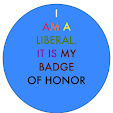The idea of buying multiple gifts with unbridled abandon for everyone you know (it seems) during the holiday season has made the season a reason for joy....for business owners who hope you won't catch on to the profusion and confusion of deals which may or may not be justifiable when you are faced with the resulting bills later on.
It seems to me a better way to deal with gift-giving (which shouldn't be the main activity of the holidays, but is) would be to use the time, money and energy to giving where it will do the most good, namely giving to those who are less fortunate than we are.
There are hundreds of ways and places to donate money, goods, or your time. And there are honorable ways to make the donations. I wince at those who donate but encompass the surrounding publicity.
And so I offer, by way of my nephew Stew, the following:
The 12th century Jewish "sage" Maimonedes published a guidleline called the "Eight Levels of Tzedakah", the higher the level the holier the act.
The eight levels are (in ascending order of "holiness"):
8. When donations are given grudgingly.
7. When one gives less than he/she should, but does so cheerfully.
...
6. When one gives directly to the poor upon being asked.
5. When one gives directly to the poor without being asked.
4. When the recipient is aware of the donor's identity, but the donor does not know the identity of the recipient.
3. When the donor is aware of the recipient's identity, but the recipient is unaware of the source.
2. When the donor and recipient are unknown to each other.
1. The highest form of charity is to help sustain a person before they become impoverished by offering a substantial gift in a dignified manner, or by extending a suitable loan, or by helping them find employment or establish themselves in business so as to make it unnecessary for them to become dependent on others.
Think about it as you give to those less fortunate this year.
8. When donations are given grudgingly.
7. When one gives less than he/she should, but does so cheerfully.
...
6. When one gives directly to the poor upon being asked.
5. When one gives directly to the poor without being asked.
4. When the recipient is aware of the donor's identity, but the donor does not know the identity of the recipient.
3. When the donor is aware of the recipient's identity, but the recipient is unaware of the source.
2. When the donor and recipient are unknown to each other.
1. The highest form of charity is to help sustain a person before they become impoverished by offering a substantial gift in a dignified manner, or by extending a suitable loan, or by helping them find employment or establish themselves in business so as to make it unnecessary for them to become dependent on others.
Think about it as you give to those less fortunate this year.


